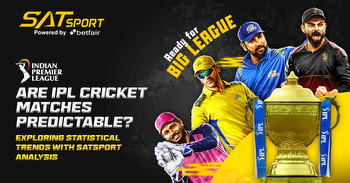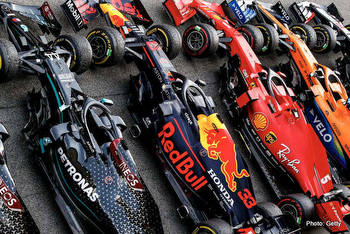Role of Data Analytics in F1 Racing and Betting

Formula 1 (aka F1) racing enthrals millions of people across the globe with its speed, precision and cutting-edge technology. To add to the excitement, betting has become a recent addition. Enthusiasts from across the world try to predict the results of the race and earn some bucks along the way.
The role of data analytics in betting for F1 racing is dynamic. Not only the sport, but even the study of stats is a high-octane experience. Sports bettors look at large volumes of historical data.
They aim to identify patterns and base their prediction on the same. They are also equally on the lookout for critical details which may sway the outcomes of the game.
If you are a novice, you can always turn to sports betting blogs that share their predictions for motor racing or other sports. To learn more about how data analytics in betting works, continue to read the article further.
History of Sports Betting
The history of wagering on sporting events dates back to the early civilizations of Greece and Rome. The most predominant form was to place bets on horse racing. Starting in the UK, its popularity boomed in the United States in the 19th century. Evidently, it has sustained into the era of automobiles.
Today, there are even dedicated online platforms, such as eBettips, that facilitate sports betting. Run by seasoned professionals, at eBettips, you will find insights into the predictions alongside betting tips. AI-driven algorithms are employed by the brand to live up to their slogan, “We take betting seriously.”
Role of Data Analytics in F1 Racing & Betting
Motor racing, particularly F1, evolved into a show for fans and bettors. This has been possible with the global appeal of the race and the emergence of internet platforms. For those attempting to forecast F1 results, the complex blend of strategy and technology poses a distinct challenge. As a result, adoption of data analytics in the betting industry accelerated and has become the norm today.
Teams employ advanced analytics to maximize efficiency, perfect tactics, and obtain a competitive advantage. Data analytics for F1 races includes the study of anything from tire temperatures to driver heart rates. The benefits of such abundant data has extended even to the betting industry.
Data analytics provides bettors with a methodical way to examine many aspects that affect race results. Patterns and trends that a human eye might miss are spotted by sophisticated analytics algorithms.
Moreover, the availability of real-time data during races enables in-play betting. In such cases, wagers can be adjusted based on unfolding events. For instance, if a driver encounters technical issues mid-race, savvy bettors armed with real-time data may seize the opportunity to adjust their bets accordingly.
How to Analyze Data for Betting in F1 Racing
Having established that data analytics in betting is an increasingly crucial aspect of F1 racing, let us now turn to the factors on the basis of which bets are placed in the game. This includes historical performance analysis, driver and team form, weather conditions and track characteristics, technical insights and real-time game data to name a few.
Historical Performance Analysis
- In F1 betting, historical performance analysis is essential. Trends can be found by examining past data, such as a team’s performance on particular courses or a driver’s performance under particular weather circumstances.
- A team’s past results, including podium finishes, average lap times, and qualifying performances, can be examined by bettors.
Driver and Team Form
- Evaluating drivers and teams in their current configuration is crucial. A team’s chances can be greatly impacted by elements including past race results, qualifying times, and any mechanical or technical problems.
- A driver’s consistency, track adaptability, and pressure tolerance yield important information.
Weather Conditions and Track Characteristics
- Weather conditions play a pivotal role in F1 races. Rain can introduce an element of unpredictability, and some teams and drivers may excel in wet conditions.
- Understanding how a particular track’s characteristics such as high-speed straights, tight corners align with a team’s strengths or weaknesses can inform betting decisions.
Technical Insights
- The intricate technical aspects of F1, such as aerodynamics, engine performance, and tire management, can be decisive. Analyzing how teams have adapted to new regulations or upgraded their cars provides a glimpse into their potential performance.
- Scrutinizing the reliability of a team’s components and their history of avoiding technical failures can be vital information for bettors.
Real-Time Data during Races
- In-play betting allows bettors to adjust their wagers based on real-time developments during races. Monitoring factors like pit stops, collisions, or sudden weather changes can present lucrative opportunities.
- Advanced analytics tools can process live data and offer insights that may not be immediately apparent to casual observers.
FAQs
Q: What is data analytics?
A: Data analytics is the science of evaluating data to draw meaningful conclusions.
Q: What is the role of data analytics in F1 racing?
A: Data analytics in F1 racing allow for quick decision making and improve the overall race strategy to gain competitive advantage.
Q: How do F1 teams use data analytics?
A: Teams in F1 racing utilize data to forecast the car’s performance under various tire kinds, fuel loads, and track circumstances.
Q: How does F1 data analytics help betting?
A: Data analytics on F1 racing helps sports bettors place their bets on the racer or the team that is likely to win, and earn money from it.
Conclusion
In the ever-evolving landscape of F1 racing and betting, data analytics has emerged as a key player. As the F1 season unfolds, enthusiasts and bettors alike will continue to witness the impact of data analytics in betting strategies. Remember what parameters are to be analyzed when using data for betting.




































